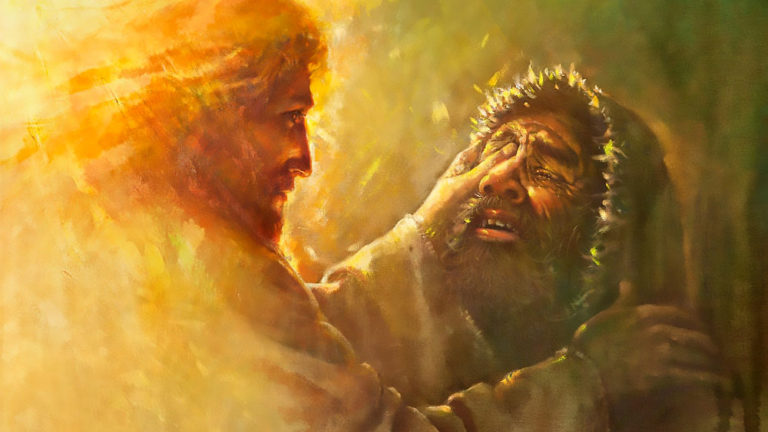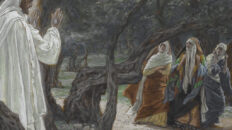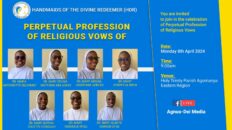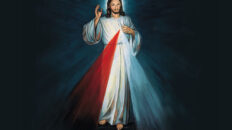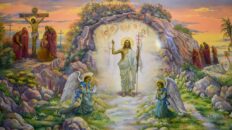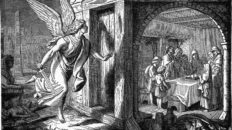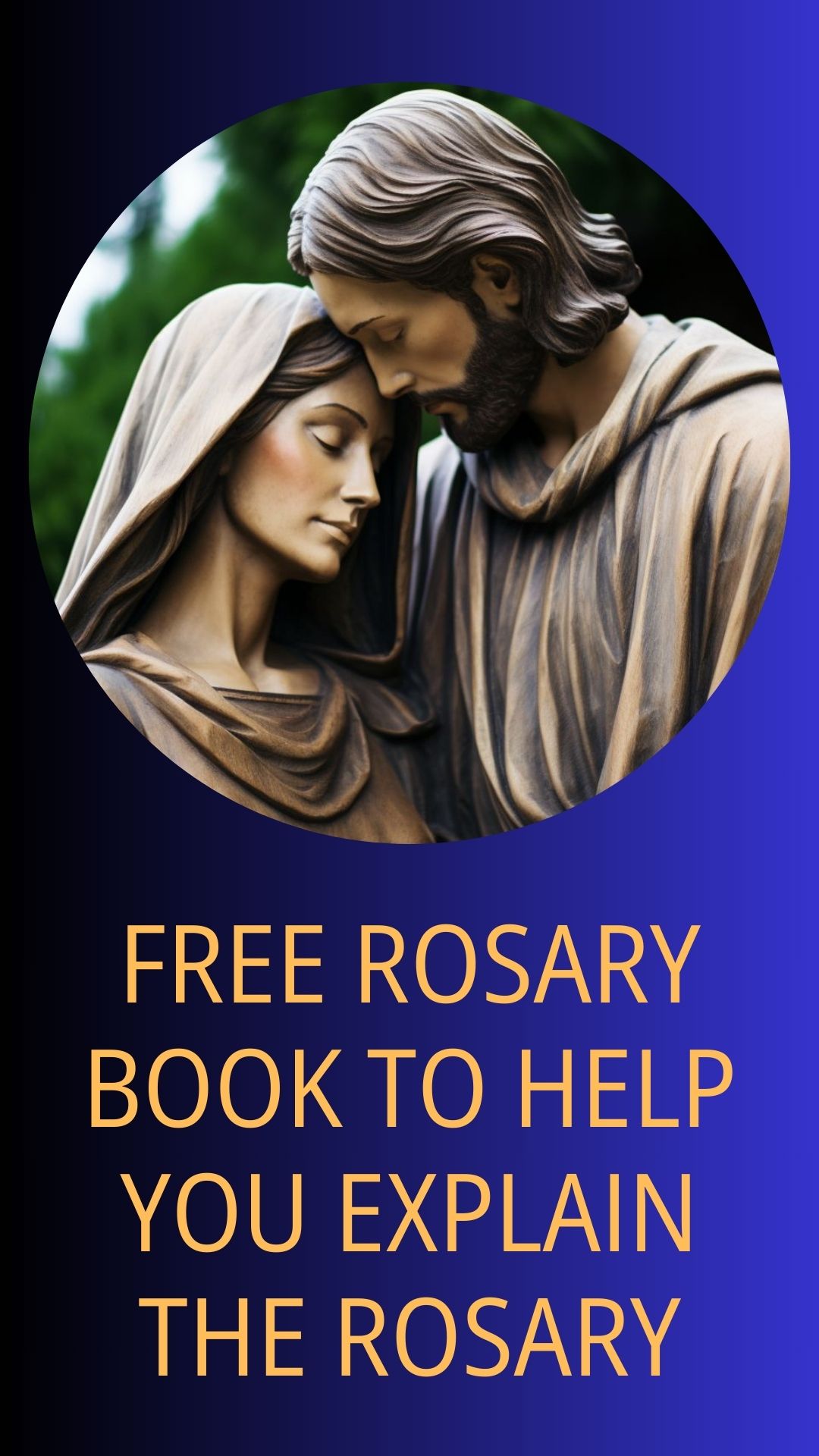THEME: LIGHT IN TIMES OF DARKNESS
READINGS: 1 Sam. 16:1, 6-7, 10-13 / Eph. 5:8-14 / John 9:1-41
4th Sunday of Lent
Figuratively, a small dark cloud appeared in the City of Wuhan, Hubei Province (China), in December, 2019. The darkness of the cloud signifies sickness and death. Unlike the usual rain-laden clouds, the dark cloud over Wuhan was caused, not by water vapour, but by the coronavirus disease 2019 (COVID-19). Within hours, the small dark cloud had expanded over the Hubei Province of China; within a few days, it had spread to other parts of Asia; and within a few weeks, it has spread over the whole world. ‘As of 21 March, more than 286,000 cases of COVID-19 have been reported in over 180 countries and territories, resulting in more than 11,800 deaths.’1
It is difficult to walk in darkness, and so no wonder, with the darkness of the cloud of COVID-19 looming over many cities across the world, their streets, shops and train and bus stations are empty even in the daytime. The COVID-19 cloud is darker than a total eclipse of the sun; for even the city that never sleeps, New York City, is empty of people even in the daytime.
In the meantime, Governments and medical scientists are making efforts to dispel this global dark cloud of COVID-19 or, at least, to reduce it size. However, the task ahead is daunting; for the dark cloud is covering not just a part of a country or even a part of the world, but the whole world.
We should, nonetheless, not give in to fear and panic. We should rather be hopeful. Thus, the psalmist assures us: ‘though I walk in the valley of the shadow of death, I will fear no evil’ (Psalm 23:4). In his turn, the prophet Isaiah assures us of a Saviour whose light overcomes the darkness over us: ‘The people who walk in darkness have seen a great light’ (Isaiah 9:2). Who, then, is this great light who has come to save us? St. Matthew provides us with an answer: He informs us that Jesus Christ is the great light that overcomes our darkness (cf. Matt. 4:14-16).
Beloved, Jesus Christ Himself would affirm: ‘I am the light of the world …He who follows Me will have the light of life’ (John 8:12). Jesus would reaffirm this before giving sight to the man born blind: ‘I am the light of the world’ (John 9:5).
Born blind, the man experienced the darkness of the total eclipse of the sun until he encountered Jesus. To dispel the darkness of the blind man or give him sight, Jesus used the things of nature: His spittle, clay and water (cf. John (9:6-7). May, Jesus, the Supreme and Divine Physician, enlighten our medical scientists to discover the appropriate ingredients of nature, their right combinations and the right conditions for the development of the most effective vaccine against COVID-19.
Furthermore, to heal the blind man, Jesus instructed him to go and wash in the Pool of Siloam (John 9:7). That is, Jesus asked him to do something practical; if you like, to do something hygienic: to wash down. Similarly, to prevent the spread of the coronavirus, we have been advised by Governments and medical experts to take some practical steps like washing of hands with soap and running water, keeping social distance, etc. Please let us adhere to these practical directives.
Moreover, beyond giving the man his physical sight, Jesus gave him spiritual insight. That is, Jesus, the light of the world enlightened the man to know and believe that Jesus is the Saviour who has come from God (cf. John 9:24-39). Paradoxically, the Pharisees who already had physical sight but refused to believe Jesus as the Saviour remained in spiritual darkness (cf. John 9:40-41). As Jesus did not heal the man solely for his physical wellbeing, but led him on the path of spiritual wellbeing, so as we pray that we will be spared of the havoc of the coronavirus, Jesus is drawing our attention to a more deadly or vicious virus, namely, sin.
The virus of sin is more deadly, because its consequence can be everlasting; it can affect our soul for eternity. This deadly virus has spread through all generations since it infected our first ancestors, Adam and Eve (cf. Rom. 5:12). St. Paul affirms the fact that we have all been infected with the virus of sin: ‘All have sinned and fall short of the glory of God’ (Rom. 3:23). To lose the absolute light of God’s glory is to be in absolute darkness. Fortunately, Jesus, who is God from God and Light from Light, has come to redeem us from our darkness. Thus, St. Paul reminds us: ‘Once you were darkness, but now you are light in the Lord; walk as children of light (for the fruit of light is found in all that is good and right and true), and try to learn what is pleasing to the Lord’ (Eph. 5:8-10).
Therefore, let us sanitize ourselves by accepting the truth of salvation in Jesus Christ, and by doing what is good and right (like prayer, fasting, almsgiving, honesty, justice, etc.). If, however, we are still living in darkness, because of the infection of the virus of sin, let us confess our sins and plead with the Lord Jesus to heal us with the vaccine of His precious blood. Finally, beloved, like the man born blind, may we experience both the physical and spiritual healing of Jesus. Amen!
Citation:
1 https://en.wikipedia.org/wiki/2019%E2%80%9320_coronavirus_pandemic; cf. https://coronavirus.jhu.edu/map.html; accessed on 21 March 2020.
By Very Rev. Fr. John Louis

